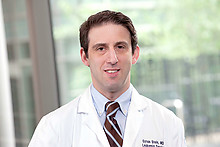Dr. Weeks’ Comment: Over the past 3 years, while lecturing to my medical and oncology colleagues, I have used the term “doctoring” the cancer cell. It seems curious to apparently care enough about the cancer cell to suggest caring for it – doctoring it – rather than just kill it. See this three part lecture “Don’t Kill the Messenger”. PART 1 Part 2 Part 3
Unless you understand the more integrative perspective of cancer – which clarifies that a cancer cell is a confused cell – a cell which has been given mixed messages from your immune system and which is torn between health and illness – you would not dream of “doctoring” a cancer cell. But what is a doctor? What does it mean to doctor something? A doctor is a teacher. Just that. That is the definition… doctor of medicine doctor of economics doctor of philosophy and doctor of divinity. A teacher. Imagine now the healthier option of teaching a cancer cell to behave rather than simply trying to kill it.
“….But a new approach is gaining attention that turns the seek-and-destroy tactic into more of a search-and-rescue one, by transforming cancer cells into normal cells instead of killing them. … This approach is truly transformative ”” both because it changes the way we look at cancer and because it literally transforms cancer cells.”
Can Cells Be Turned from Cancerous to Normal?
 Hematologist Eytan Stein
Hematologist Eytan SteinHistorically, cancer treatment has aimed to eliminate cancer cells, whether through traditional methods such as surgery, chemotherapy, and radiation or newer treatments such as targeted therapies and immunotherapies.
But a new approach is gaining attention that turns the seek-and-destroy tactic into more of a search-and-rescue one, by transforming cancer cells into normal cells instead of killing them. So far, it’s showing early promise in treating certain kinds of leukemia and other blood cancers.
“Leukemia occurs when immature cells are able to accumulate in the blood,” says Memorial Sloan Kettering hematologist Eytan Stein. “These cells, which form in the bone marrow, contain mutations that prevent them from differentiating into specialized blood cell types. If we can find drugs to block the enzymes that prevent the cells from maturing, we may have a way to cure the leukemia.”
If we can find drugs to block the enzymes that prevent the cells from maturing, we may have a way to cure the leukemia.
-Eytan Stein, Hematologist
Dr. Stein is leading a study evaluating one of the first drugs to take advantage of this approach. He presented early findings last weekend at the American Society of Hematology (ASH) annual meeting in San Francisco. The study was also featured in The Wall Street Journalearlier this week.
Blocking Mutant Enzymes
The drug, called AG-221, works by blocking enzymes made from a mutant form of the gene IDH2. The normalIDH2 protein is found in every cell of the body and plays a role in the biochemical process by which the cell makes energy.
“Certain IDH2 mutations induce cells to take on a life of their own,” Dr. Stein explains. “They cause them to produce enzymes called oncometabolites, which prevent normal blood stem cells in the bone marrow from differentiating into immune cells called neutrophils.”
The current study included patients with a variety of blood cancers caused by IDH2mutations, primarily acute myeloid leukemia and myelodysplastic syndrome. Of the 45 patients who were on the drug long enough to be evaluated, 25 had a response, and five responded well enough to be able to undergo a bone marrow transplant, the current standard of care.
Analysis showed the level of oncometabolites was greatly reduced in patients taking AG-221, an indication that the drug was reaching its intended target.
Transforming Treatment
“With the exception of only one other drug called ATRA for the treatment of acute promyelocytic leukemia, this is not the usual way to treat cancer,” Dr. Stein notes. “This approach is truly transformative ”” both because it changes the way we look at cancer and because it literally transforms cancer cells.”
AG-221 is taken as a pill at home, “and we know it improves patients’ quality of life if they don’t have to go into the clinic and receive chemotherapy,” Dr. Stein says. “In addition, these cancers often occur in older people who frequently can’t get traditional chemotherapy because of other health problems.”
The investigators stress that this drug is still in the very early stages of testing, but they have already expanded the phase I trial to include more patients based on the promising results so far.
In addition to Dr. Stein’s study, MSK had two other studies featured in the press program at the ASH meeting, the most from any single institution. Both were related to the treatment of Hodgkin lymphoma. One study found that giving patients a targeted antibody drug as maintenance therapy after bone marrow or stem cell transplant improved survival; the other found that an immunotherapy drug improved outcomes in patients who had failed to respond to standard treatment.
The leukemia study was funded by Agios, the company that makes AG-221.

